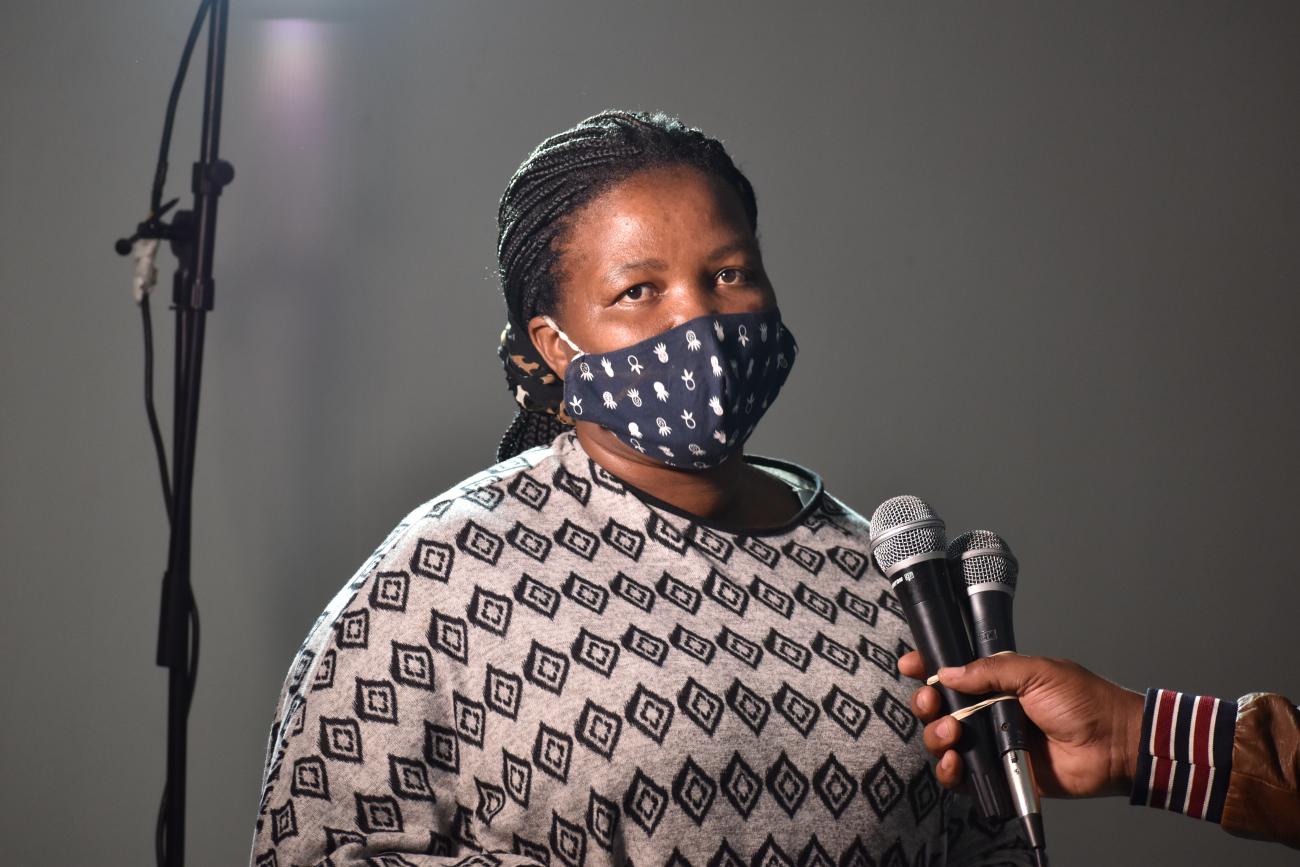The UN Hosts an Inspiring UN75 Dialogue with Persons Living with HIV

In collaboration with UNAIDS, the UN hosted an inspiring UN75 Dialogue with Persons Living with HIV at the George Hotel on Wednesday, 5th August.
On 5th August 2020, in collaboration with UNAIDS, the United Nations hosted an inspiring and important UN75 dialogue with persons living with HIV. With a population of approximately 1.1 million people, the Kingdom of Eswatini has the highest prevalence of HIV in the world, with over 200,000 people living with HIV. Thus, the voices of those living with HIV are crucial in our nation’s recovery from the COVID-19 pandemic and efforts to build a better future.
Over 50 people were in attendance at the event, of all ages and from across the country. The dialogue was hosted at the George Hotel.
The UN Resident Coordinator, Ms Nathalie Ndongo-Seh, stated in her opening remarks; “Although the COVID-19 pandemic affects everyone and everywhere, it does not affect everyone equally. The pandemic has laid bare severe and systemic inequalities. The UN is particularly concerned about the impact of COVID-19 on vulnerable populations, including PLHIV, People with Disabilities, Migrants, refugees, women, children, and older persons,”
“In several parts of the world, COVID-19 is colliding with the ongoing HIV epidemic or another health emergency such as Ebola in certain parts of the DRC. COVID-19 must be a wake-up call to do things differently and mount a recovery that is people-centered and is based on economic and social justice.”
Participants shared how COVID-19 has affected their lives, with many describing how lockdowns have led to an inaccessibility to their regular anti-retroviral treatment (ART). A lady living with HIV shared how she usually buys her medication in neighbouring South Africa; thus, border closures meant that she had to change her medication to that which is locally available. Unfortunately, she incurred severe side effects following this change, such as; nausea, vomiting, fatigue and tiredness.
Limited access to healthcare and treatment centres, loss of jobs and income, have negatively affected the lives of those living with HIV. If not on effective treatment for HIV, such persons are also extremely vulnerable to contracting severe illness from COVID-19.
However, the room was still filled with an atmosphere of positivity as attendees shared how they have embraced the COVID-19 pandemic and subsequent lockdown. Majaha Mbusiya, a 25 year old young man living with HIV, entrepreneur, business owner and peer-motivator stated; “COVID-19 has affected me positively because I believe that as a young person, I can do all things. My mentor once said to me; ‘Time is the greatest commodity that I have. In each life lies great responsibility.’ Now that I have time, I wake up every day to do all things and be better.”
Majaha operated his cleaning service, ‘Pristine Cleaning Services’ throughout the lockdown, using his days off due to limited working hours to grow his business further, expanding into the residential markets.
Attendees shared their desire to see a future in which there are no more HIV infections and all those who live with HIV have access to affordable, effective or government-sponsored treatment.
The UN Resident Coordinator remarked, notably, that; “Before the outbreak of the disease, the Kingdom of Eswatini was on course to eradicate AIDS by 2030. Eswatini has surpassed the global target of 90-90-90and has reached the 2030 target of 95-95-95. This means that, in Eswatini, 95% of people living with HIV know their HIV status; 95% of people who know their HIV status are receiving antiretroviral therapy; and 95% of people on treatment have a suppressed viral load…”
She continued; “While we are confronted by the COVID-19 pandemic, we still have to end AIDS and provide full support to those affected by the AIDS pandemic, and we will. Our AIDS response remains embedded in the principles of Global Solidarity and Shared Responsibility.”
















